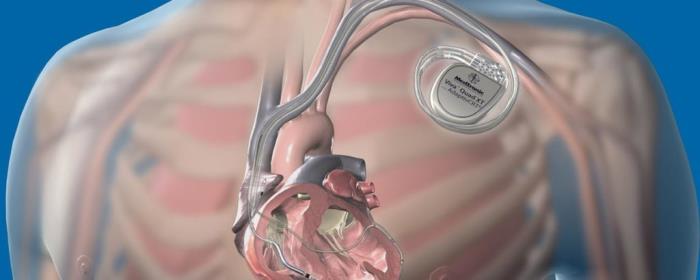Automated Implantable Cardioverter Defibrillator (AICD) implantation is a crucial procedure for individuals at risk of life-threatening arrhythmias. This device helps monitor heart rhythms and delivers electrical shocks when necessary to restore a normal heartbeat. Understanding the recovery process following AICD surgery is essential for patients to ensure optimal healing and adaptation to life with an AICD. This includes knowing what to expect in terms of immediate post-operative care, physical limitations, and emotional adjustments.
Immediate Post-Implantation Care and Recovery
Following AICD implantation, patients typically stay in the hospital for a day or two for monitoring and initial recovery. Medical staff will closely observe the heart's activity to ensure the device is functioning correctly and to manage any immediate post-operative discomfort. Patients may experience soreness at the implant site and will be provided with pain relief options. Instructions regarding wound care, activity restrictions, and follow-up appointments are given to facilitate a smooth recovery process.
Common Physical Limitations After AICD Surgery
In the days and weeks following AICD implantation, patients often encounter certain physical limitations. Activities that involve lifting heavy objects, vigorous exercise, or straining movements should be avoided, particularly in the first few weeks post-surgery. Patients may also need to refrain from driving for a specified period, usually until cleared by their healthcare provider. These precautions help minimize the risk of complications while allowing the surgical site to heal properly.

Resuming Daily Activities: What to Expect
As recovery progresses, most patients can gradually resume their daily activities, although it is essential to do so at a measured pace. Many individuals can return to work within a couple of weeks, depending on the nature of their job and their physical condition. Patients should pay attention to their body's signals and consult their healthcare team if they experience any unusual symptoms or complications during this transition. It's vital to strike a balance between activity and rest to promote healing while maintaining quality of life.
Adapting Exercise Routines After AICD Placement
Returning to exercise is an important aspect of recovery, as physical activity contributes to overall heart health. However, patients should consult their healthcare provider to develop an appropriate exercise plan tailored to their recovery stage and fitness level. Initially, low-impact activities such as walking or gentle stretching are recommended. Patients should gradually increase intensity while being cautious of their body’s responses to avoid overexertion.
Safe Physical Activities and Recommended Exercises
Once cleared by their healthcare provider, patients can engage in a variety of safe physical activities. Low-impact exercises like walking, swimming, and cycling are typically encouraged, as they enhance cardiovascular fitness without putting undue strain on the heart. Strength training may be incorporated gradually, with an emphasis on using lighter weights and proper form. It's crucial for patients to listen to their bodies, stopping any activity that causes discomfort or abnormal heart sensations.
Managing Emotional and Psychological Changes Post-Surgery
The journey after AICD implantation is not only physical but also emotional. Many patients may experience anxiety or fear regarding their heart health and the implications of living with an AICD. It is important to address these emotional changes by seeking support from healthcare professionals, family, or support groups. Counseling or therapy can also be beneficial in helping patients cope with their feelings and adjust to the lifestyle changes that accompany AICD implantation. Maintaining open communication with healthcare providers can foster a supportive environment for discussing any concerns or fears.

Dietary Considerations for Heart Health After AICD
After AICD implantation, maintaining a heart-healthy diet is crucial for overall cardiovascular health. Patients are encouraged to follow a diet rich in fruits, vegetables, whole grains, and lean proteins while minimizing saturated fats, trans fats, sodium, and added sugars. Adopting the Mediterranean diet or DASH diet can be beneficial. It's also essential to stay hydrated and limit alcohol consumption, as excessive drinking can negatively impact heart health.
Medication Management: Importance of Adherence
Adherence to prescribed medication regimens is critical for AICD patients, as these medications can help manage heart rhythm, blood pressure, and reduce the risk of complications. Patients should keep track of their medications, understand their purpose, and discuss any side effects with their healthcare providers. Utilizing pill organizers or reminder apps can enhance adherence and improve outcomes.
Regular Follow-Up Appointments and Device Monitoring
Regular follow-ups with healthcare providers are vital for monitoring the AICD's functionality and the patient's overall heart health. Device checks ensure that the AICD is working properly and that the settings are optimal. Patients should schedule appointments as recommended and report any unusual symptoms or changes in their condition during these visits.
Understanding Your AICD: What Patients Should Know
Patients should educate themselves about their AICD, including its purpose, how it works, and what to expect during and after implantation. Understanding device functionality, potential complications, and when to seek medical help can empower patients to take an active role in their healthcare.
Travel Tips for AICD Patients: What to Consider
AICD patients can travel safely, but they should take certain precautions. Informing airline staff about the AICD can help manage security screenings, as metal detectors may trigger alarms. Carrying a medical ID card that identifies the AICD and any other medical conditions can also be helpful. Patients should plan for medications, monitor their heart health, and be aware of medical facilities at their travel destinations.
Communicating with Healthcare Providers About Changes
Effective communication with healthcare providers is essential for optimal care. Patients should feel comfortable discussing any changes in symptoms, medication side effects, or lifestyle challenges they encounter after AICD implantation. Keeping a journal of symptoms or questions can facilitate these conversations during appointments.
Recognizing Symptoms That Require Immediate Attention
AICD patients should be aware of symptoms that warrant immediate medical attention, such as persistent chest pain, shortness of breath, fainting, rapid or irregular heartbeats, and signs of infection at the implantation site. Recognizing these symptoms early can lead to timely intervention and prevent complications.
Building a Support System: Friends and Family Involvement
Having a strong support system can significantly impact recovery and overall well-being for AICD patients. Friends and family can assist with daily activities, emotional support, and encouragement for adhering to lifestyle changes. Patients should communicate their needs and involve loved ones in their care journey.
Adjusting Work and Social Life After AICD Implantation
After AICD implantation, patients may need to adjust their work and social lives to accommodate recovery and lifestyle changes. Discussing any necessary modifications with employers and colleagues can create a supportive environment. Engaging in social activities that promote heart health, like walking groups or cooking classes, can help maintain an active lifestyle.
Resources and Support Groups for AICD Patients
Patients may benefit from connecting with support groups specifically for those living with AICDs. These groups provide a platform for sharing experiences, gaining insights, and receiving emotional support. Online resources and local organizations can offer valuable information and connect patients with others facing similar challenges.
Long-Term Health Goals: Maintaining a Heart-Healthy Lifestyle
Setting long-term health goals is essential for AICD patients. Goals may include maintaining a healthy weight, engaging in regular physical activity, managing stress, and adhering to medication regimens. Patients should work with healthcare providers to develop personalized goals and strategies for achieving them.
Real-Life Success Stories of Living with an AICD
Hearing success stories from other AICD patients can inspire hope and motivation. Many individuals share how they’ve adapted to life with an AICD, overcoming challenges and achieving their health goals. These narratives can provide valuable lessons and encouragement for new patients.
Risks and Complications Associated with AICD Implantation
Get informed about the risks and complications associated with AICD implantation. This section outlines potential risks, including infection and device malfunction, and emphasizes the importance of thorough pre-operative assessment and post-operative monitoring to ensure patient safety.
Symptoms Indicating the Need for AICD Surgery
Explore the symptoms that may indicate the need for AICD surgery. This section highlights common warning signs of arrhythmias and other heart issues that warrant further evaluation, helping patients recognize when to seek medical advice for potential AICD intervention.
Conclusion: Embracing Life After AICD Implantation
Life after AICD implantation can be fulfilling and active with the right support, knowledge, and lifestyle changes. By understanding their condition, adhering to treatment plans, and seeking support, patients can embrace a heart-healthy lifestyle and enjoy improved quality of life.
Best AICD Implantation in India
The Best AICD Implantation in India involves placing a small device to monitor heart rhythms and deliver lifesaving shocks if dangerous arrhythmias are detected, ensuring enhanced heart safety for high-risk patients.
Best AICD Implantation Hospitals in India
The Best AICD Implantation Hospitals in India are equipped with cutting-edge technology and skilled cardiology teams, providing comprehensive care and expertise in cardiac rhythm management.
AICD Implantation Cost in India
The AICD Implantation Cost in India is competitively priced, making advanced cardiac care accessible with transparent and affordable treatment options.
Best AICD Surgeons in India
The Best AICD Surgeons in India are highly skilled in cardiac device implantation, providing personalized care to help patients manage serious heart conditions effectively.
FAQ
What lifestyle changes should I make after getting an AICD?
Patients should focus on maintaining a heart-healthy diet, managing stress, exercising regularly, and adhering to medication regimens.
How long is the recovery period after AICD implantation?
Recovery typically takes a few weeks, during which patients should avoid strenuous activities and follow their doctor's instructions regarding wound care and follow-ups.
Can I exercise normally after AICD surgery?
Most patients can return to normal physical activity gradually, but it’s important to follow their healthcare provider’s recommendations and listen to their body.
What symptoms should prompt me to contact my doctor?
Patients should contact their doctor if they experience persistent chest pain, shortness of breath, fainting, rapid heartbeats, or signs of infection at the implantation site.
Are there any dietary restrictions for AICD patients?
While there are no strict dietary restrictions, patients are encouraged to follow a heart-healthy diet low in saturated fats, sodium, and added sugars to support overall heart health.
Explore the Best Heart Care Resources in India
Find some of the top cardiologist, surgeons and the best heart hospitals in India
Best Heart Hospitals in India
Choosing the right hospital is crucial for successful heart treatments. If you want to explore trusted options, check the list of Best Heart Hospitals in India offering world-class facilities, advanced cardiac care units, and experienced teams for both simple and complex procedures.
Best Cardiologists in India
Finding the right cardiologist can make a huge difference in early diagnosis and long-term heart health. If you are looking for the Best Cardiologists in India, see this curated list of experts who specialize in preventive care, interventional cardiology, and complex heart disease management. Check the full list Best Cardiologists in India.
Best Cardiac Surgeons in India
If you are planning for heart surgery and need top-level expertise, we recommend exploring the Best Cardiac Surgeons in India. These surgeons have a proven record in performing bypass surgeries, valve replacements, and minimally invasive heart operations with excellent outcomes.